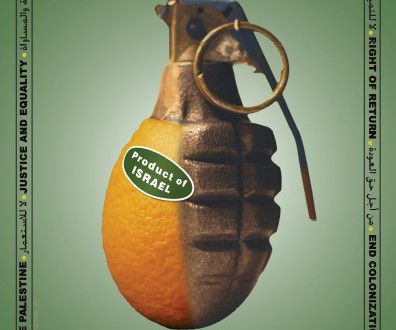Following Israeli media furor, the US State Department has clarified that recently announced US guidelines prohibiting settlement products from being labeled ‘Made in Israel’ were not new, but a ‘restatement of existing requirements.’US State Department spokesman Mark Toner made the clarification following confusion over a statement, released earlier in the week by US Customs and Border Protection, which said that West Bank products may not be labeled ‘Made in Israel.’
Several media outlets reported the move was initiated by the Obama administration, in line with a recent European Union decision that prohibits settlement products — as well as any other goods made in the occupied territories — from being labelled as Israeli.
According to Ma’an, the Obama Administration supported the EU decision, but did not take steps toward similarly far-reaching measures.
Unlike the EU guidelines, US labeling rules do not differentiate between products made in Israel’s illegal settlements and those produced elsewhere in the occupied West Bank.
“This guidance was simply a restatement of previous requirements,” Toner said. “It in no way supersedes prior rulings or regulations, nor does it impose additional requirements with respect to merchandise imported from the West Bank, Gaza Strip, or Israel.”
When asked whether the guidelines were reissued due to the fact the law has been “enforced very poorly or not at all” over the last 20-some years, Toner said a number of complaints had been lodged alleging mislabeling of West Bank products, but gave no further information on the origins of these complaints.
He added that the system of labeling required by US customs “in no way” represented “a boycott or anything like that.”
Toner did not clarify the reason behind the decision by US Customs to publicly restate the guidelines.
The US Customs’ guidelines on labeling West Bank products initially originated alongside the Oslo Accords in 1993 and was intended to stimulate growth of the Palestinian economy by differentiating between Israeli and Palestinian products.
At that time there were few products made in illegal Israeli settlements in the occupied West Bank.
Several campaigns have been launched in the US against the alleged failure of US customs to enforce the guidelines.
Also of interest: US Ambassador to Israel: ‘Settlement Product Labels Not Boycott’

